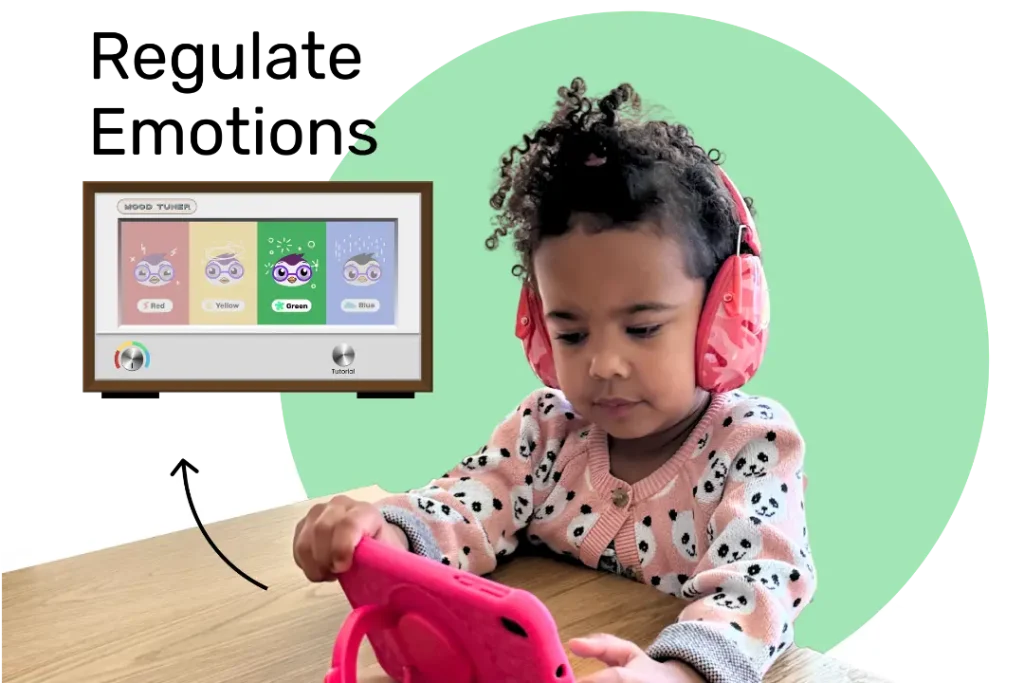Imagine a child grappling with a challenge, whether a tricky math problem or a social situation. How do they tackle it? That’s where problem-focused coping comes in, a powerful strategy that can help neurodivergent kids navigate life’s hurdles. In this post, we’ll explore problem-focused coping, why it’s essential for kids with thinking and learning differences, and how you can support your child in developing this valuable skill. You’ll even discover how Goally can be a helpful tool in this journey. So, let’s get started!
Table of Contents
Understanding Problem-Focused Coping
Problem-focused coping is a proactive approach that involves finding and addressing the root cause of a problem or stressor. It’s all about taking action and finding solutions rather than merely reacting to the situation. This strategy is particularly beneficial for neurodivergent kids, as it empowers them to tackle challenges head-on and build resilience.
By using problem-focused coping, kids can gain a sense of control and independence, making navigating the world around them easier. Let’s take a closer look at why this coping strategy is so vital for neurodivergent kids.

Why is Problem-Focused Coping Important for Neurodivergent Kids?
For kids with thinking and learning differences, everyday tasks can be overwhelming.
Problem-focused coping equips them with the tools to:
- Boost self-confidence
- Improve problem-solving skills
- Reduce anxiety and stress
- Enhance resilience and adaptability
Developing problem-focused coping strategies can transform how your child approaches challenges, making them feel more capable and confident in their abilities.
How to Support Your Child in Developing Problem-Focused Coping Skills
As a parent, you play a crucial role in helping your child develop problem-focused coping skills. Here are some steps you can take:
1. Encourage Open Communication
Start by fostering an environment where your child feels comfortable discussing their challenges. Listen actively and empathetically, encouraging them to express their feelings and thoughts. This open communication will help you better understand your kid’s needs and work together to find solutions.

Read more: What Causes Social Anxiety in a Child?
Remember, it’s essential to validate your child’s feelings and let them know it’s okay to ask for help. By creating a safe space for communication, you’ll be better equipped to support their problem-focused coping journey.
2. Teach Problem-Solving Techniques
Introduce your child to various problem-solving techniques, such as:
- Breaking tasks into smaller steps
- Brainstorming multiple solutions
- Evaluating the pros and cons of each option
- Implementing and reassessing the chosen solution
By practicing these techniques, your child will become more adept at tackling challenges and develop a problem-focused coping mindset. Remember, repetition is key, so be patient and consistent in teaching these skills.
3. Model Problem-Focused Coping
Kids often learn by example, so demonstrate problem-focused coping in your own life. When faced with a challenge, talk through your thought process and the steps you’re taking to address it. This will show your child that it’s possible to overcome obstacles with a proactive approach.

Read more: How to Prevent an Autism Meltdown
Moreover, be open about your struggles and how you’ve used problem-focused coping to overcome them. This can help normalize the process and inspire your child to adopt similar strategies.
4. Praise Efforts and Progress
Recognize and celebrate your child’s efforts in using problem-focused coping strategies. This positive reinforcement will boost their self-confidence and motivate them to continue developing these skills.
Be specific in your praise, highlighting the particular strategies they used and how it helped them overcome a challenge. This will reinforce the value of problem-focused coping and encourage its continued use.
How Goally Can Help
Goally is a learning tablet designed specifically for neurodivergent kids, offering a range of apps that can support the development of problem-focused coping skills.
Here’s how Goally can help:
- Visual Schedules: Goally’s visual schedules break tasks into manageable steps, making it easier for your child to tackle challenges and develop problem-solving skills.
- Task Analysis: The task analysis feature allows your child to evaluate their progress and identify areas for improvement, fostering a problem-focused coping mindset.
- Parental Support: Goally provides resources and guidance for parents, helping you better support your child in developing problem-focused coping strategies.
By incorporating Goally into your child’s daily routine, you can provide them with the tools and support they need to develop problem-focused coping skills and thrive in the face of challenges.
Goally | Kid’s Tablet for Building Emotional Regulation Skills
Is your child struggling with understanding and managing their emotions? Goally teaches emotional regulation skills in a fun and interactive way!

The Mood Tuner app encourages kids to look inwards and identify their feelings, helping them understand what’s going on inside. Once they’ve recognized their emotions, they can choose from a variety of exercises designed to help them self-regulate and find their balance.
Embrace Problem-Focused Coping for a Brighter Future
Problem-focused coping is a powerful tool that can transform the way neurodivergent kids approach challenges. By understanding its importance, supporting your child in developing these skills, and utilizing resources like Goally, you can help your child build resilience, confidence, and independence. So, why not start today and set your kid on the path to a brighter future?
This post was originally published on 05/11/2023. It was updated on 10/13/2023.

Goally
We help parents teach their kids life skills, like doing bedtime and morning independently. Backed by science, we incorporate evidence-based practices and expert-informed designs in all of our apps and content.






